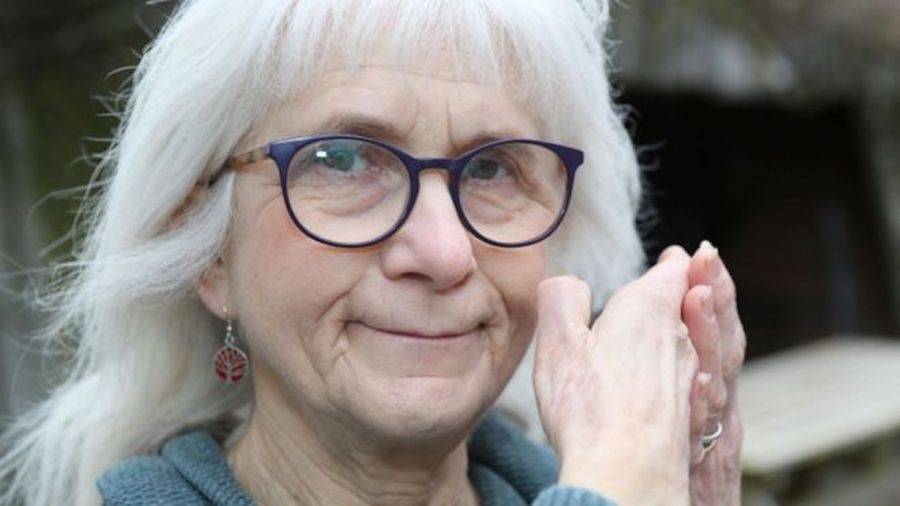The Pain-Free Mutant Gene
"Each of these mutations teach us something, and point to a particular gene as a potential target for new and more effective pain medications."
"They [statin drugs] were developed largely on the basis and discovery of incredibly rare families where everyone was having heart attacks in their 20s."
"But I'm reasonably confident that the lessons we are learning from the genes involved in pain will lead to the development of an entirely new class of pain medications."
Dr. Stephen G. Waxman, neurologist, Yale University
"I could feel that my body was changing [in pregnancy]. Don't worry, it's not as bad as people say it is [she assured prospective mothers on the basis of her own experience]."
"I can't remember him [her father] needing any painkillers. I think that's why I didn't find it odd [that she herself never did]."
"[Never depressed or frightened] I am very happy."
"I'm always forgetting things; I always have done. It's good in lots of ways but not in others. I don't get the alarm system everyone else gets."
"Learning about it now fascinates me as much as it does anyone else. I would be elated if any research into my own genetics could help other people who are suffering."
Jo Cameron, 71, Loch Ness, Scotland
 |
| Jo Cameron’s genes also give her immunity against stress and depression. Peter Jolly/Rex/ShutterStock |
"People with rare insensitivity to pain can be valuable to medical research as we learn how their genetic mutations impact how they experience pain."
"We would encourage anyone who does not experience pain to come forward."
James Cox, senior lecturer, University College London, UK
Researchers who studied the extraordinarily rare experience of a now-elderly woman living in Scotland concluded that she was in possession of a gene that made pain, anxiety or depression foreign to her nature. Their paper, published in the British Journal of Anaesthesia, saw them attributing her lifelong inability to feel pain to a genetic mutation, as yet unidentified. Their aspiration is that medical science will identify that gene which might lead to the development of a treatment for pain.
Throughout her life, Jo Cameron has never felt anxiety or fear, and her body has the capacity to quickly heal from any physical insult. "We've never come across a patient like this", commented head of the Molecular Nociception Group, John Wood, at University College London. For close to a century scientists have documented studies of individuals experiencing little or no pain, yet the genetic mutation appearing responsible for painlessness for Jo Cameron has never been identified.
According to Dr. Waxman, author of Chasing Men on Fire: The Story of the Search for a Pain Gene, who was not part of the study producing the recent paper, medical science needs alternatives for the treatment of chronic pain, which are less addictive.
Cameron's unique and rare genetic mutation came to the attention of medical science when, following a hand operation and expressing no pain, the doctor was puzzled that she had no need of painkillers. "I guarantee I won't need anything", she informed Devjit Srivastava, a consultant in anesthesia and pain medicine at a National Health Service hospital in northern Scotland, one of the paper's authors.
Questioned, it was revealed that at age 65 she had required hip replacement, but had felt no pain and as a result failed to notice that something was awry until her hip had degenerated severely. Similarly, cuts, burns, fractures which she also experienced also caused her no pain. Her husband, aware of this, became habituated to alerting her if something appeared amiss.
Dr. Srivastava referred his patient to University College London's Molecular Nociception Group, focused on genetic approaches to studying the biology of pain and touch. Scientists in recent decades identified dozens of others who process pain in unusual ways, but when Dr. James Cox inspected her genetic profile, there appeared little resemblance to that of other people known to be able to live without experiencing pain.
A gene that scientists identify as FAAH-OUT, common to all people, turned out to be the locus of her pain-free experience. "The patient has a deletion that removes the front of the gene", he announced. Cameron had simply taken it for granted that what she had experienced in lack of pain was common -- until all the interest scientists were taking in her condition finally impinged to persuade her how 'different' she is that her injuries seldom left scars; yet another peculiarity that scientists link to her genetic mutation.
Her low anxiety level is yet another point of intrigue for scientists where, on an anxiety disorder questionnaire, her score turned out zero out of 21 -- for a woman who cannot ever recall feeling depressed or frightened. Erratic, aggressive behaviour never impacted on her, which had been an aid to her efficacy as a primary school teacher who retrained to work with people with severe mental disabilities.
In a slight reversals of the positives associated with her condition, she is forgetful, loses her keys and her train of thought, even midsentence. And nor has she ever felt that "adrenalin rush" she has heard other people speak of; entirely foreign to her experience. The investigators are now prepared to focus on attempting to more fully comprehend how FAAH-OUT operates, with the intention of designing some manner of pain intervention around it.
 |
| Researchers attribute Cameron's virtually pain-free life to a mutation in a previously unidentified gene. |
Labels: Genetics, Health, Health Protocols, Medication, Research, Science

0 Comments:
Post a Comment
<< Home